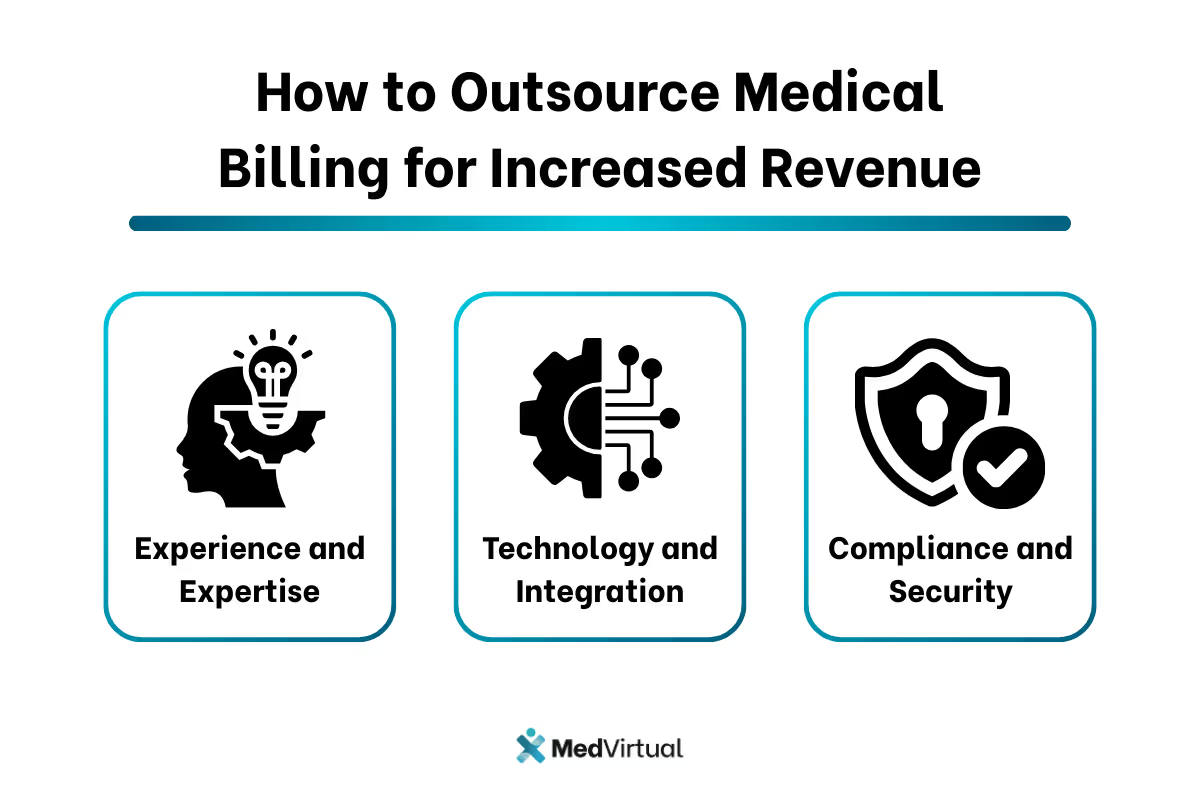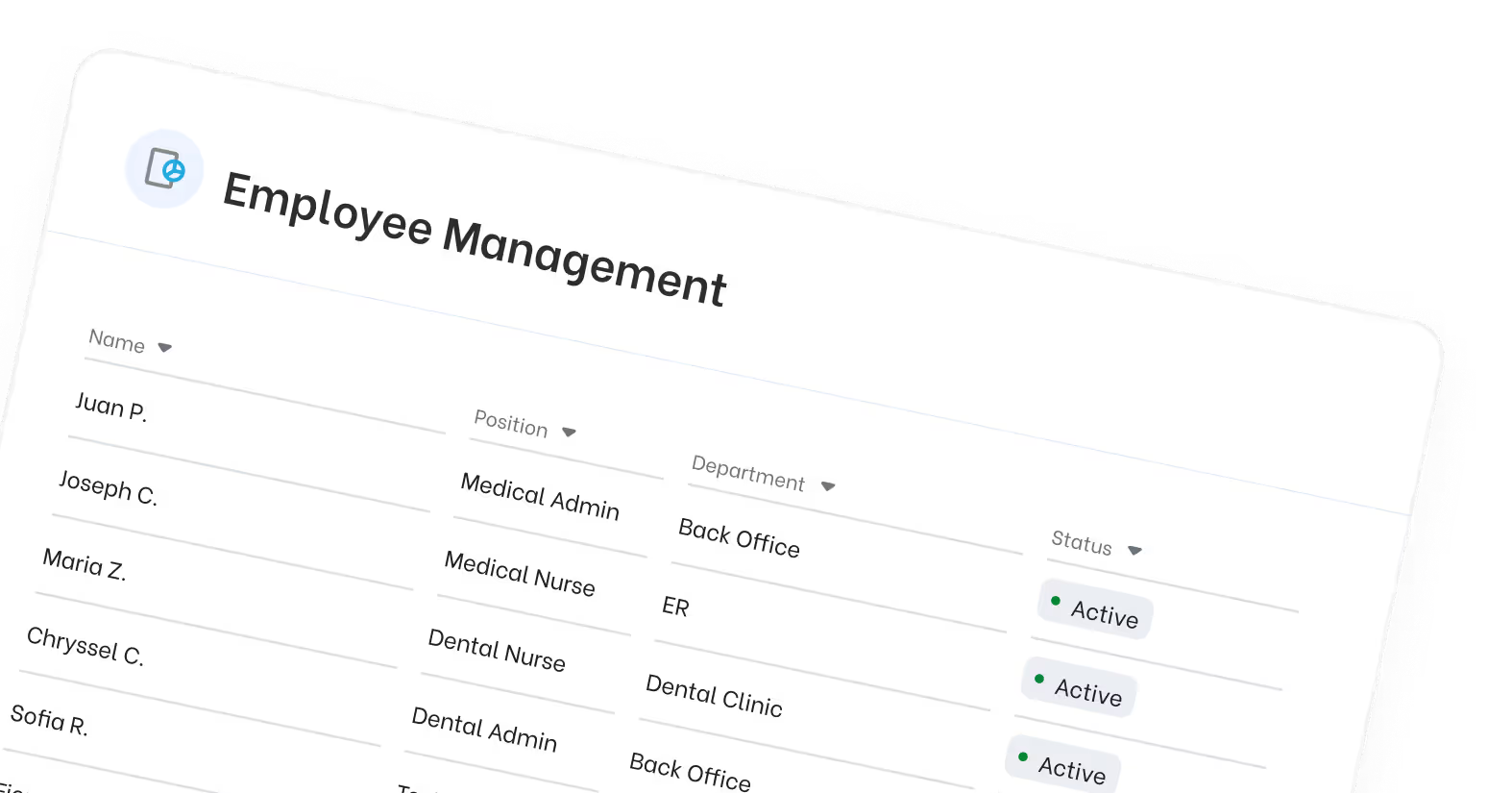How to Outsource Medical Billing for Increased Revenue

If you’re looking to outsource medical billing for increased revenue, here’s the truth: when done right, it can solve a lot of problems. It cuts overhead costs, reduces billing errors, and improves cash flow for your practice. This guide breaks down how to find the right billing partner, make a smooth transition, and boost both patient satisfaction and your overall financial health.
Key Takeaways
- Outsourcing medical billing services reduces operational costs and billing errors while improving revenue cycle performance.
- Declining clean claim rates and growing accounts receivable are signals that it’s time to outsource billing.
- A reliable billing company should offer deep expertise, advanced billing technology, and strong security protocols.
The Benefits of Outsourcing Medical Billing
Outsourcing medical billing is one of the smartest moves healthcare organizations can make. It removes the burden of running an in-house billing department, which means no more hiring, training, or retaining a full medical billing staff. This switch directly lowers overhead costs and gives your team more breathing room.
The improved accuracy is no joke either. Medical billing companies are staffed with certified medical billing specialists and professional coders who know medical coding inside out. Their precision helps reduce billing errors, recover denied claims, and ensure accurate claims submission, improving your revenue cycle and boosting financial health across the board.
Most importantly, outsourcing lets healthcare providers focus on delivering quality patient care. When administrative tasks like billing operations are off your plate, your in-house staff can give more attention to patient care. That shift increases efficiency, lifts patient satisfaction, and helps your healthcare practice grow.
When Is It Time to Outsource Medical Billing?
It’s not always clear when to move away from in-house medical billing. But the numbers don’t lie. If your clean claim rate drops below 95% or your accounts receivable (A/R) stretches beyond 45 days, your billing process is underperforming.
Other red flags include frequent billing staff turnover, higher claim denials, or poor patient payment handling. These challenges create administrative burdens that drain your practice. Outsourcing billing at this stage improves billing operations and helps restore financial control.
Keep an eye on your medical billing process. Track key performance indicators like claim submission rates, collections, and denied claims. If your team can’t keep up, it’s time to explore outsourced billing services.
How to Choose the Right Medical Billing Partner
Not all medical billing companies are built the same. Your billing partner should feel like an extension of your team, one that understands the healthcare industry and speaks your language.
Experience and Expertise
Choose a billing company with real experience in medical practice management. Look for a team of billing specialists with credentials in coding and billing, insurance verification, and denial management. A good track record, solid case studies, and positive client reviews are non-negotiable.
The right partner knows how to process claims accurately and understands all the relevant data required to minimize denied claims and improve your revenue cycle.
Technology and Integration
Top-tier billing services rely on powerful tech. Think cloud-based systems, robotic automation, and full EHR integrations. These platforms reduce delayed payments and billing errors, automate billing tasks, and enhance the overall billing process.
The best billing solutions offer real-time dashboards, streamlined claim submission processes, and tighter control over your billing data while remaining HIPAA compliant.
Compliance and Security
Outsourcing medical billing services only works if security protocols are rock-solid. That means full HIPAA compliance, encryption, and consistent medical data monitoring.
Your billing company should prioritize secure handling of patient data, ensure compliance with coding regulations, and use up-to-date best practices to protect against data breaches.

Transitioning to Outsourced Billing Services
Switching to outsourced billing can feel like a leap. But with the proper prep, it’s smoother than you think.
Start with a clear needs assessment. Identify what’s not working with your current in-house billing setup. Then, align your goals with the capabilities of your selected medical billing services provider.
The transition should include a secure data transfer process. All patient data, including name, age, contact info, insurance details, and medical history, needs to be transferred safely. Make sure the company follows strict security protocols and protects billing data during every stage.
Finally, don’t skip onboarding. Proper training helps your in-house staff and the outsourced billing team work in sync from day one. This reduces administrative burdens, streamlines the billing process, and ensures zero disruption in your medical services.
Maximizing Revenue Cycle Management Through Outsourcing
One of the biggest benefits of outsourcing medical billing is what it does for your revenue cycle management.
Faster Claim Submissions
Efficient claim submission is the heartbeat of revenue cycle success. Outsourced billing services specialize in reducing billing errors, verifying patient insurance early, and accelerating the claim process. This leads to fewer denied claims, quicker reimbursements, and stronger cash flow.
Denial Management
Outsourced billing companies bring a significant advantage in handling denied claims. With the proper denial management protocols, your billing partner can reduce claim denials and maximize revenue recovery through appeal strategies and end-to-end tracking.
Medical billing specialists ensure every claim is followed up on, reducing revenue leakage and improving financial health for your medical practice.
KPI Tracking and Optimization
Outsourcing medical billing gives you access to high-level analytics. From first pass acceptance rate (FPAR) to A/R days and collection ratios, the right billing services let you monitor the performance of your billing operations in real time.
That visibility helps you make strategic decisions, track your revenue cycle, and avoid future billing issues.
For more on revenue cycle management best practices, the Healthcare Financial Management Association offers valuable resources.
Measuring the ROI of Outsourcing Medical Billing
When you outsource medical billing, you’re not just spending, you’re investing in long-term profitability. Medical billing outsourcing replaces variable costs like staff wages, office supplies, billing software, and equipment with a fixed fee structure that’s easier to manage.
It also helps you avoid the surprise costs of in-house medical billing, like training, turnover, and billing delays.
Outsourcing medical billing can boost your annual collections by 5% or more. With better tracking, cleaner claim submissions, and faster patient payments, you’ll see the full impact on your bottom line. The more consistent and streamlined your billing process, the greater your financial return.
Patient Satisfaction: The Overlooked Benefit of Outsourcing
Here’s something people don’t talk about enough: Outsourcing billing services improves the patient experience.
When in-house staff aren’t buried in billing tasks, they spend more time building patient relationships and delivering quality patient care, which improves trust and retention.
On top of that, medical billing companies are better equipped to handle patient billing questions, offer faster resolutions, and use AI-powered tools to reduce confusion around charges. That transparency leads to fewer complaints and greater patient satisfaction.
What to Watch Out For
Outsourcing has huge upsides, but don’t skip due diligence.
- Time zones: Ensure your partner works during your hours or offers fast response times.
- Transparency: Ask for real-time access to billing data and dashboards.
- Hidden costs: Look for extra charges like setup fees, legal costs, or support plans.
- Training gaps: Ensure in-house staff and billing specialists are trained and aligned.
You can solve these issues early, and your outsourced billing setup will run like a well-oiled machine.

Take Control of Your Revenue Cycle Today!
Outsourcing medical billing is no longer just an option; it’s a strategic move for modern healthcare practices. It reduces costs, strengthens the revenue cycle, and gives healthcare providers more time to deliver patient care.
Choose a reliable medical billing partner, like Medvirtual, watch the results, and let your practice grow.
Frequently Asked Questions
What are the key benefits of outsourcing medical billing?
Outsourcing medical billing offers significant benefits, including reduced costs, improved revenue, and enhanced billing accuracy, which allows healthcare providers to concentrate more on patient care. This strategic move can lead to a more efficient practice and better financial health.
When is the right time to consider outsourcing medical billing?
The right time to consider outsourcing medical billing is when you notice a clean claim rate dropping below 95%, accounts receivable delays exceeding 45 days, or an increase in staff turnover. These signs indicate financial strain and inadequate billing capacity, prompting the need for professional outsourcing support.
How do I choose the best medical billing company?
To choose the best medical billing company, prioritize expertise, technology, and compliance with security protocols. Focus on firms with industry-specific knowledge and a proven track record to ensure reliable service.
How does outsourcing medical billing improve revenue cycle management?
Outsourcing medical billing enhances revenue cycle management by streamlining claim submissions and optimizing denial management, resulting in faster claim payments and improved financial performance. This strategic approach ultimately supports the long-term financial health of healthcare providers.
What challenges might I face when outsourcing medical billing, and how can I overcome them?
Outsourcing medical billing can pose challenges such as communication barriers, billing accuracy, and transparency. You can mitigate these issues by establishing clear communication channels, offering ongoing training, and implementing real-time reporting dashboards.






